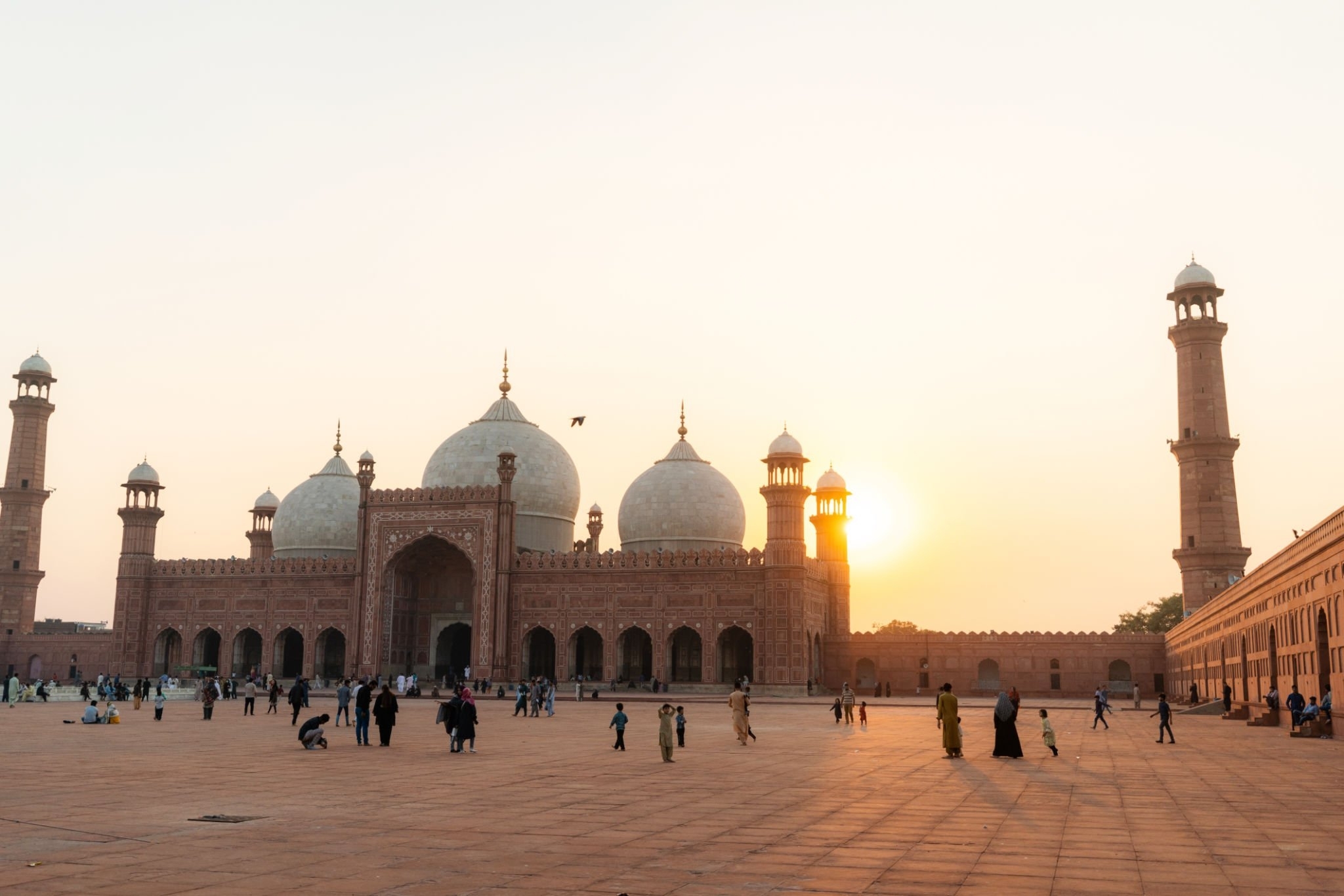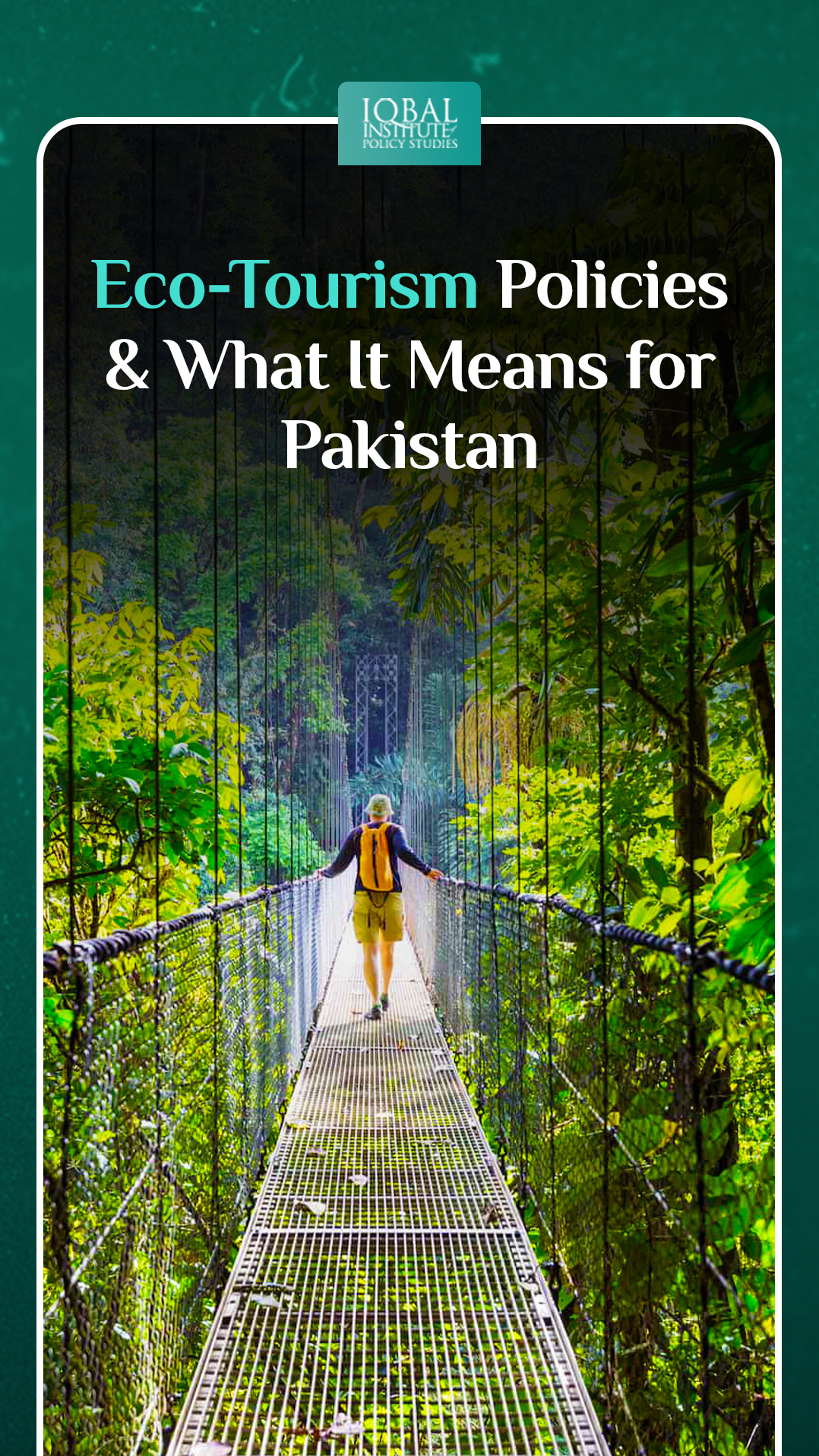What is Eco-Tourism?
Eco-tourism is an environmentally-friendly practice of facilitating tourist activities in the country. Presently, the world is adversely affected by climate change. Therefore, there is a need to promote environmentally-friendly policies that maintain the sanctity of native lands and livelihoods. This blog will look at how a country can implement ecotourism policies and what Pakistan can do to ensure sustainable tourism.
Eco-Tourism Policies in Detail
Eco-tourism is a growing aspect of tourism that is more immersed in protecting the environment and keeping it natural, ensuring that no amount of human activity causes habitat loss, disturb pristine lands and harms wildlife. As in most regions, tourism is attractive to domestic people and is a way for outsiders to experience the way of life.
Globally, there is an emphasis on utilising the full potential of the tourism sector. Due to the increase in global tourism (International tourist arrivals almost tripled in January to July 2022 (+172%) compared to the same period of 2021), it has been realised that many people can benefit from the tourism sector by setting up local businesses, particularly in the hospitality sector, regional cuisines, cultural industry, antiques, etc.
How can Eco-tourism Policies be Introduced in each of these Facets of Tourism?
Now we will discuss how eco-tourism policies can aid in emphasising the issue and what possible recommendations are
Nature-Based Eco-Tourism
Nature-based tourism (NBT) can be described as the outdoor activities performed by tourists in the natural environment. NBT activities range from high-level adventure activities like mountaineering, water sports, and skydiving to more relaxing activities like forest walking, wildlife tours, and boat cruises. It is the most common type of tourism in any country. However, the impacts of these activities on the environment are substantial, including polluting the environment and depleting local natural resources. Furthermore, tourists’ overconsumption of natural resources often puts strain on already scarce resources. Hence, to ensure harmony for nature, policymakers, promotors, and tourists must ensure that all tourism activities will have a minimal environmental impact.

Eco-tourism for the Hospitality Sector
Whenever people travel, the demand for accommodation imperatively increases. Locals build hotels and restaurants to satiate this demand, neglecting the concern that it might affect the natural biodiversity.
There are also many cases of encroachments due to the inability of regulatory bodies to carry out feasibility studies These encroachments include utilising native land, natural reserves such as wetlands, or natural streams, which adversely affect the environment. Therefore, these approaches are wrong and proved harmful to the environment.
Before any real estate development in the tourism zone, environmental studies must be conducted in the region, and construction zones must be defined to indicate where construction can be done. In this regard, the regulatory body should ensure full observance of these provisions to avoid law violations. Further, the administration of each hotel, motel, or guest house should provide a descriptive proposal of how they would dispose of garbage, accommodate the increased demand for car parking, and use the open spaces for recreational activities.
Another important factor in the hospitality sector is affordability. During peak seasons, many hotel owners take advantage of the situation and increase the fares. For this reason, government authorities should strictly regulate and control the prices of hotels.

Eco-Tourism for the Cultural Industry
A region’s cultural industry should be exemplary to that place and develop in a way that flourishes. Indeed, efforts should be made to keep the cultural values of the place intact while experiencing different and vibrant cultures up close.
The most crucial factor of the culture industry is the history, artefacts and local cuisines of the region, which in most cases are acquired tastes. To create a greater demand for these cultural services, the provincial and local governments should launch awareness campaigns and commission vloggers to disseminate digital content about dos and don’ts while exploring the region’s culture. The locals must accommodate the tourists with positive gratitude and facilitate and guide them properly.
A second consideration is the cleanliness and hygiene of restaurants, eateries, and hotels at tourist destinations. Lack of cleanliness and hygiene leaves a bad impression on both local and foreign tourists.
From these measures, eco-tourism can be encouraged. Moving next, we will enlighten some of the reforms by the government of Pakistan to ensure eco-tourism.

Pakistan’s Effort to Promote Eco-Tourism
Pakistan’s government has significantly promoted sustainable tourism in response to environmental degradation and climate change.
The initiatives include anti-encroachment drives to halt the use of single-use plastics in the Hunza district of Gilgit-Baltistan. The former government also launched a “One Billion Tree Tsunami Initiative” countrywide and plantation drives in all significant provincial capitals. Another important thing is that the government is all set to present initiatives to counteract the impacts of environmental degradation.
Activities like hunting are a sport that is not only enjoyed by the locals but also by international tourists. An incumbent government should put a comprehensive system in place to ensure that the population of animals is not affected in any way. Through the system of patents, the government can employ locals with a fixed wage for their services. Hence, hunting activities are regulated this way while using locals as watchers.
Despite these efforts, there is a need for strong comprehensive policies and long-term goals to achieve eco-tourism in the country.
Conclusion
Pakistan is a country where tourism has started growing after a long period. The government should engage regulatory authorities, town planners and all the stakeholders to prepare a comprehensive plan to develop and regulate the tourism sector of Pakistan without disturbing its natural habitat.



Leave a Reply